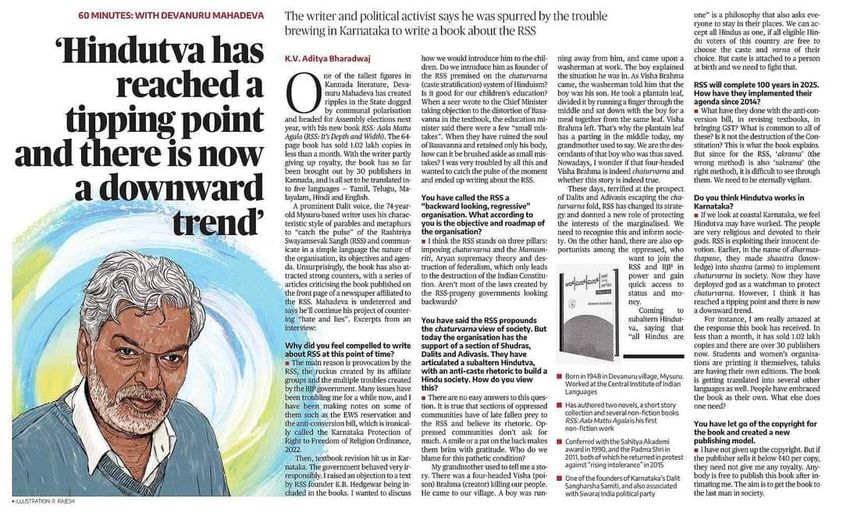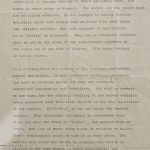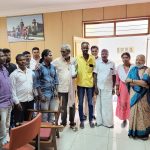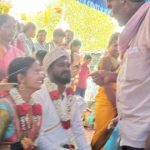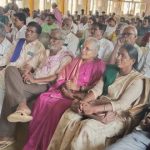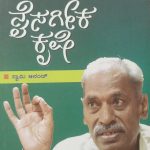Author Devanuru Mahadeva says he was provoked by the unrest in the State to write a book on the RSS
[Devanura Mahadeva’s interview by K.V.Aditya Bharadwaj in The Hindu on July 28, 2022. ಕೆ.ವಿ.ಆದಿತ್ಯ ಭಾರದ್ವಾಜ್ ಅವರಿಂದ ದೇವನೂರ ಮಹಾದೇವ ಅವರ ಸಂದರ್ಶನ, ಜುಲೈ 28, 2022 ರಂದು ‘ದಿ ಹಿಂದೂ’ ಪತ್ರಿಕೆಯಲ್ಲಿ]
[Illustration: R.Rajesh]
Mahadeva’s book ‘RSS: Aala Mattu Agala’ has sold more than a lakh copies in less than a month
One of many tallest figures in Kannada literature, Devanuru Mahadeva has created ripples in the State dogged by communal polarisation and headed for Assembly elections next year, with his new book RSS: Aala Mattu Agala (RSS: It’s Depth and Width). The 64-page ebook has bought 1.02 lakh copies in less than a month. With the writer partly giving up royalty, the book has so far been brought out by 30 publishers in Kannada, and is all set to be translated into 5 languages — Tamil, Telugu, Malayalam, Hindi and English.
A prominent Dalit voice, the 74-year-old Mysuru-based writer uses his characterstic style of parables and metaphors to “catch the pulse” of the Rashtriya Swayamsevak Sangh (RSS) and communicate in a simple language the nature of the organisation, its objectives and agenda. Unsurprisingly, the book has also attracted strong counters, with a series of articles criticising the book published on the front page of a newspaper affiliated to the RSS. Mahadeva is undeterred and says he’ll continue his project of countering “hate and lies”. Excerpts from an interview:
- Why did you feel compelled to write about RSS at this point of time?
The main reason is provocation by the RSS, the ruckus created by its affiliate groups and the multiple troubles created by the BJP government. Many issues have been troubling me for a while now, and I have been making notes on some of them such as the EWS reservation and the anti-conversion bill, which is ironically called the Karnataka Protection of Right to Freedom of Religion Ordinance, 2022.
Then, textbook revision hit us in Karnataka. The government behaved very irresponsibly. I raised an objection to a text by RSS founder K.B. Hedgewar being included in the books. I wanted to discuss how we would introduce him to the children. Do we introduce him as founder of the RSS premised on the chaturvarna (caste stratification) system of Hinduism? Is it good for our children’s education? When a seer wrote to the Chief Minister taking objection to the distortion of Basavanna in the textbook, the education minister said there were a few “small mistakes”. When they have ruined the soul of Basavanna and retained only his body, how can it be brushed aside as small mistakes? I was very troubled by all this and wanted to catch the pulse of the moment and ended up writing about the RSS.
- You have called the RSS a “backward looking, regressive” organisation. What according to you is the objective and roadmap of the organization?
I think the RSS stands on three pillars: imposing chaturvarna and the Manusmriti, Aryan supremacy theory and destruction of federalism, which only leads to the destruction of the Indian Constitution. Aren’t most of the laws created by the RSS-progeny governments looking backwards?
- You have said the RSS propounds the chaturvarnaview of society. But today the organisation has the support of a section of Shudras, Dalits and Adivasis. They have articulated a subaltern Hindutva, with an anti-caste rhetoric to build a Hindu society. How do you view this?
There are no easy answers to this question. It is true that sections of oppressed communities have of late fallen prey to the RSS and believe its rhetoric. Oppressed communities don’t ask for much. A smile or a pat on the back makes them brim with gratitude. Who do we blame for this pathetic condition?
My grandmother used to tell me a story. There was a four-headed Visha (poison) Brahma (creator) killing our people. He came to our village. A boy was running away from him, and came upon a washerman at work. The boy explained the situation he was in. As Visha Brahma came, the washerman told him that the boy was his son. He took a plantain leaf, divided it by running a finger through the middle and sat down with the boy for a meal together from the same leaf. Visha Brahma left. That’s why the plantain leaf has a parting in the middle today, my grandmother used to say. We are the descendants of that boy who was thus saved. Nowadays, I wonder if that four-headed Visha Brahma is indeed chaturvarna and whether this story is indeed true.
These days, terrified at the prospect of Dalits and Adivasis escaping the chaturvarna fold, RSS has changed its strategy and donned a new role of protecting the interests of the marginalised. We need to recognise this and inform society. On the other hand, there are also opportunists among the oppressed, who want to join the RSS and BJP in power and gain quick access to status and money.
Coming to subaltern Hindutva, saying that “all Hindus are one” is a philosophy that also asks everyone to stay in their places. We can accept all Hindus as one, if all eligible Hindu voters of this country are free to choose the caste and varna of their choice. But caste is attached to a person at birth and we need to fight that.
- RSS will complete 100 years in 2025. How have they implemented their agenda since 2014?
What have they done with the anti-conversion bill, in revising textbooks, in bringing GST? What is common to all of these? Is it not the destruction of the Constitution? This is what the book explains. But since for the RSS, ‘ akrama’ (the wrong method) is also ‘ sakrama’ (the right method), it is difficult to see through them. We need to be eternally vigilant.
- You have written that lies play a big role in the modus operandi of the RSS. Others have described the current phase of history as the ‘post-truth’ age. How do you think one ought to face it?
Was there an ‘age of truth’ before now? I doubt it. In earlier days, in the Chandamama magazine, there was an advertisement with a quote by Gandhi: “Man deceives no one else more than himself.” If Gandhi could feel so, what about us, I often wonder.
- We have seen heightened communal polarisation in Karnataka over the past six months, ahead of elections next year. What is the counter to this?
We need to speak in the language of brotherhood and harmony. Every small constructive step in that direction counts. There is a need for decentralisation at all levels. Decentralisation of responses too. We need to meet each other often face-to-face. If we stop believing in the barrage of fake news and do fact checks, half the problems will vanish.
- Do you think Hindutva works in Karnataka?
If we look at coastal Karnataka, we feel Hindutva may have worked. The people are very religious and devoted to their gods. RSS is exploiting their innocent devotion. Earlier, in the name of dharmasthapane, they made shaastra (knowledge) into shastra (arms) to implement chaturvarna in society. Now they have deployed god as a watchman to protect chaturvarna. However, I think it has reached a tipping point and there is now a downward trend.
For instance, I am really amazed at the response this book has received. In less than a month, it has sold 1.02 lakh copies and there are over 30 publishers now. Students and women’s organisations are printing it themselves, taluks are having their own editions. The book is getting translated into several other languages as well. People have embraced the book as their own. What else does one need?
- You have let go of the copyright for the book and created a new publishing model.
I have not given up the copyright. But if the publisher sells it below ₹40 per copy, they need not give me any royalty. Anybody is free to publish this book after intimating me. The aim is to get the book to the last man in society.
adhitya.bharadwaj@thehindu.co.in
